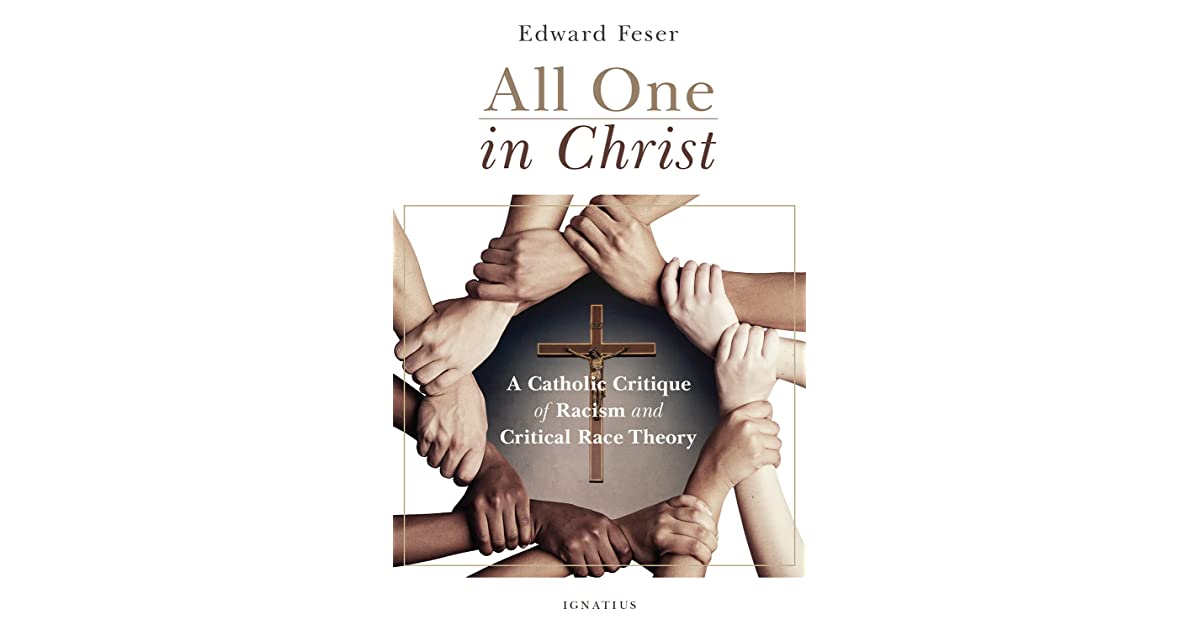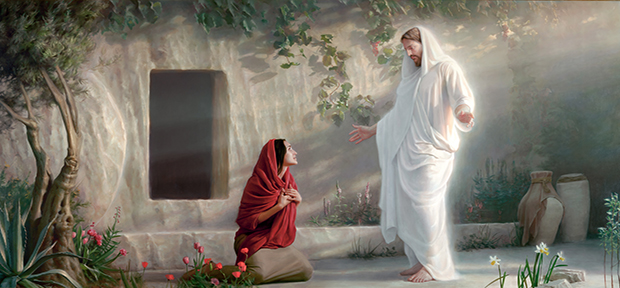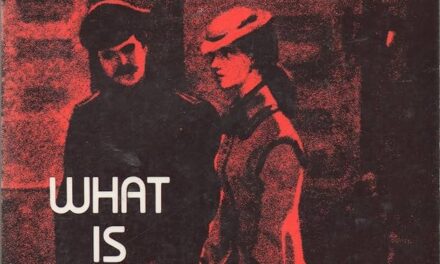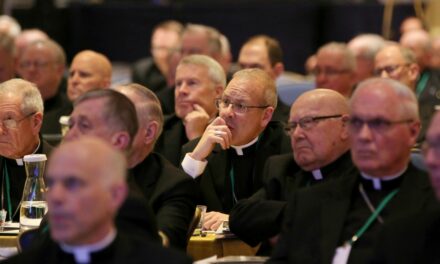In 2012, a friend of mine asked me whether I had read Charles Kesler’s book I Am the Change: Barrack Obama and the Crisis of Liberalism. Indeed, I had and told him that I wished I could put that book in the hands of a million young men and women. Perhaps ten million would have been closer to what was needed, but the point was clear enough: Kesler’s book was that important.
Last year, Ignatius Press published a book by Edward Feser, Professor of Philosophy at Pasadena City College (California), entitled All One in Christ: A Catholic Critique of Racism and Critical Race Theory. Like I Am the Change, it is a timely, thorough, and indispensable book that needs to be read by every college student, corporation board member, news editor, and congressman (the reasonable ones). Digesting its arguments may prove a matter of national and cultural survival.
As the subtitle of the book indicates, Feser addresses arguably the key issue in politics today, one so charged with emotion that a calm, reasoned discussion is nigh impossible. But Feser is nothing if not reasonable. If you didn’t know he was a philosophy professor on opening All One in Christ, you’d guess it after a few pages.
Without wasting any time, he dives into the problem of racism, presenting a brief, clear historical survey of Rome’s position on racism, replete with quotations from encyclicals (beginning as early as St. Thomas Aquinas, moving forward to Paul VI in the early 16th century, and through various pronouncements all the way to the present). After reading the first chapter, one would be hard pressed to deny the Church’s consistent teaching on the matter. Feser closes the discussion with a quotation from Gaudium et Spes, the Second Vatican Council’s pastoral constitution, which observes that although men are diverse in talents and mind, “[n]evertheless, with respect to the fundamental rights of the person, every type of discrimination, whether social or culture, whether based on sex, race, color, social condition, language or religion, is to be overcome and eradicated as contrary to God’s intent” (29). Clear enough?
If racism receives such a strong ecclesiastical condemnation, slavery logically cannot be overlooked. Again, Feser cites numerous documents to establish the historically consistent stance the Church has taken. Drawing from such luminaries as Bartolomeo de las Casas and Francisco de Vitoria, both Scholastics, to refute Aristotle’s view of slavery, as well as from Popes Urban VIII (1639), Innocent XI (1686), Benedict XIV (1741)—all living during the high tide of the Western slave trade—he shows beyond any doubt how careful Rome was in condemning the ownership of and trafficking in our fellow human beings.
Immigration, too, falls under Feser’s lens, and although the Church has acknowledged that countries should always be ready to accept a certain number of immigrants, it has also recognized that a nation, as Sir Roger Scruton has observed, is analogous to a family, with its common language, customs, and political order passed down from generation to generation. An immigrant, if he comes to a new homeland in good faith, must adopt its traditions as his own. Those who desire to open their own borders to foreigners without any view to assimilation are playing fast and loose with the future of their country.
Sad to say, some advocates of open borders are guilty of what Scruton calls, “oikophobia,” that is, the “repudiation of one’s own nation.” This nod to Sir Roger prompts Feser to note the existence of a small but vocal and influential group of Westerners that despises their birthright. From there, he guides his reader into his discussion of CRT, by far the largest section of the book.
The first chapter of All One in Christ that deals specifically with CRT naturally tries to define it, which Feser does with ample quotations from the movement’s chief spokesmen: Richard Delgado and Jean Sephancic, Ibraim X. Kendi, and Robin DiAngelo, among others. What they say about themselves is shocking, namely, that a new order must come into being, one composed of black racism, Marxian consolidation of power, and rejection of Western liberal political institutions and ideas (constitutionalism, reason, evidence-based legal examination, individual responsibility). Ringing changes on the Post-modernists’ and Frankfurt School Critical Theorists’ great theme, Kendi explains that the goal is acquisition of power. The inordinate political and cultural influence CRT has gained with the help of bureaucrats, lawmakers, academics, and TV producers exists to stamp all of those who disagree, with the hated label “racist,” a term that includes those who are homophobic, Islamophobic, transphobic, sexist, and generally bourgeois. One’s intentions or anti-racist past are irrelevant: if you’re white (and sometimes a wayward-thinking black), you’re guilty.
Feser’s refutation of CRT’s claims then unfolds over three chapters: part one laying out the myriad logical fallacies CRT’s advocates use; part two dealing with the movement’s “social scientific” weaknesses; and part three describing a Roman Catholic response to CRT.
It would take far too much space here to do justice to Feser’s careful argument, but perhaps his most striking point is his last chapter, discussing the disturbing similarities CRT shares with both Marxism and Nazism. Just as those totalitarian systems condemned people for being capitalist (middle class, kulaks) or Jewish, CRT trains its sights on an enemy, whiteness, identifying it as a cancer in the body of society. Like the Gnostic and Manichaean heretics in the first centuries of Christianity, the Kendis and DiAngelos separate the world into camps of absolute good and absolute evil. And since these modern Gnostics reject an otherworldly salvation through faith in Christ (a point Feser emphasizes by highlighting Kendi’s own liberation theology), they place their hope in the here-and-now (Voeglin’s “immanentizing the eschaton”), a fundamentally materialistic final victory over what they define as a big-tent white racism. In effect, they “sacralize the revolution,” which, like the chief totalitarian ideologies of the 20th century, will likely result in horror and destruction, a true “cancel culture.”
All One in Christ is a model of succinct argument, terse prose, and painstaking organization. Hardly a word is wasted. If you want to know—and know how to combat—the new heresy of CRT, this is the book for you. And, as I’ve already suggested, it’s a book for millions if they’ll just read it.














